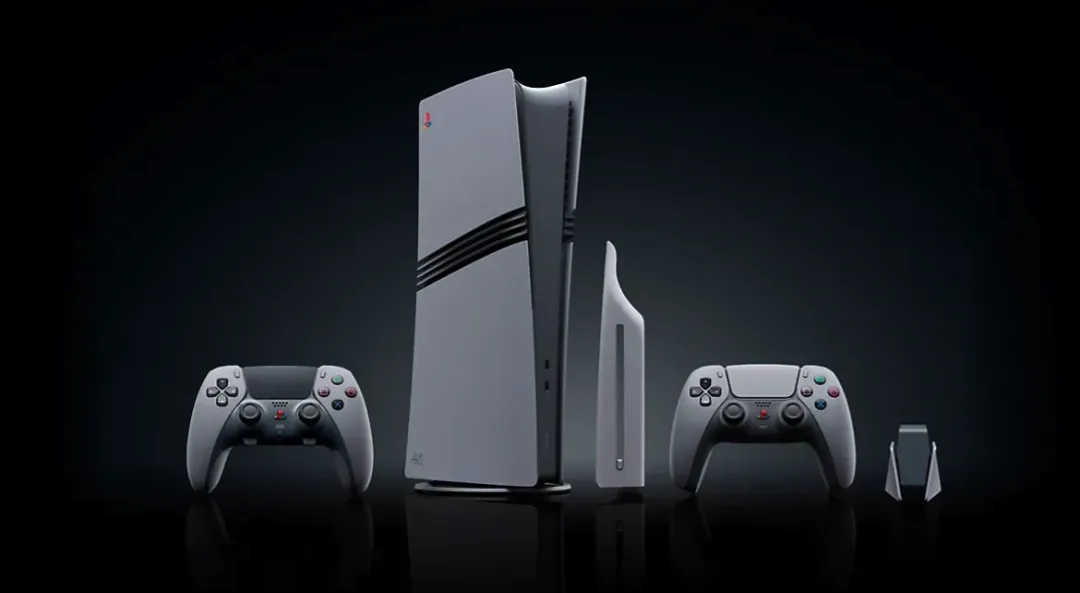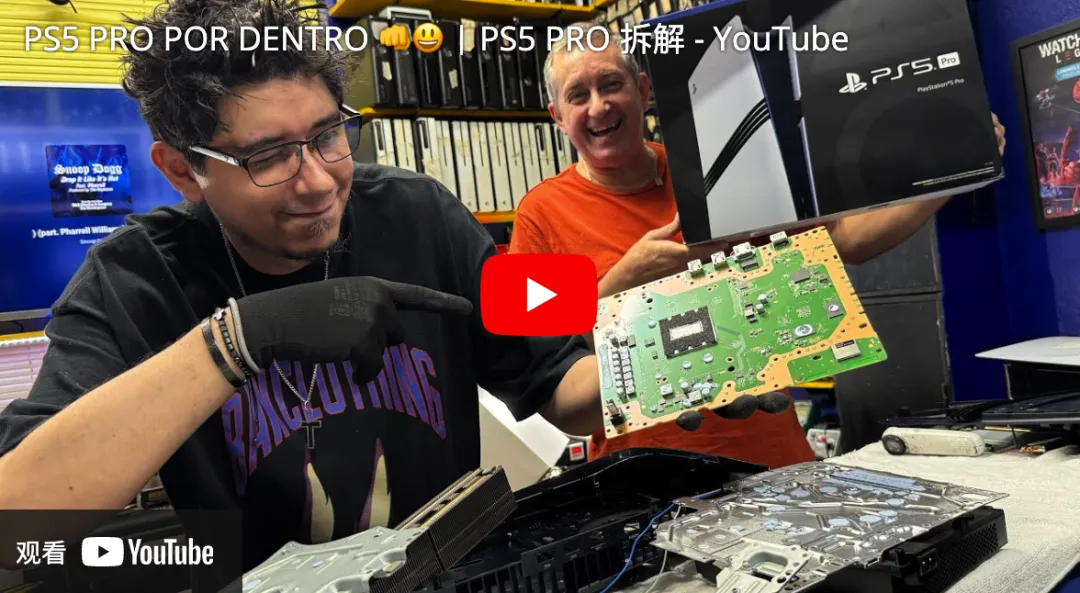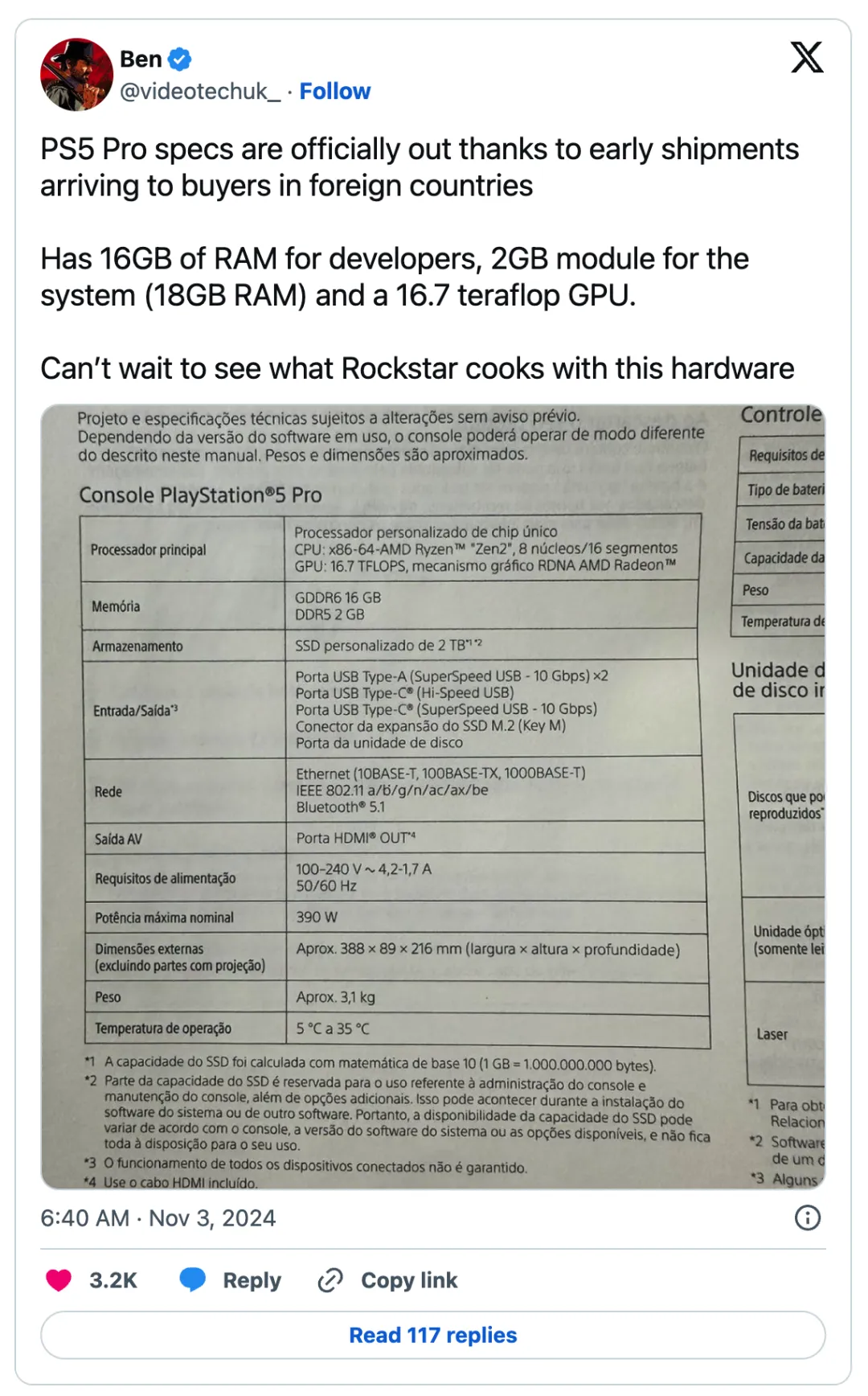Sony is set to launch the new PlayStation 5 Pro on November 7, priced at $699 USD. This upgrade boasts enhanced CPU and GPU performance compared to the base model released in November 2020. The introduction of PlayStation Spectral Super Resolution (PSSR) AI technology promises significant improvements in resolution and frame rates.

Microsoft's Xbox has been relatively inactive in recent years, allowing Sony to firmly dominate the high-end console market. Recently, a teardown video of the new console surfaced on YouTube, garnering significant attention. This video, allegedly from a console repair store in Portugal, demonstrates the disassembly of the PlayStation 5 Pro, revealing an internal design closely resembling that of the PlayStation 5 Slim model. Sources suggest that the PS5 Slim's panel could potentially be compatible with the Pro version, assuming the interlocking mechanism remains unchanged, thus lending credibility to the teardown.

Adding to the buzz was a speculated leak of PlayStation 5 Pro specifications shared by Twitter user @videotechuk_, who is known for prior leaks related to Rockstar Games. The leak indicates that the PlayStation 5 Pro will retain the Zen 2 architecture, similar to its predecessor, ensuring strong compatibility with the original PlayStation 5. Reports also hint that the PS5 Pro might operate at higher clock frequencies.

A particularly interesting aspect of the leaked specs is the PS5 Pro's expected GPU performance of 16.7 trillion floating point operations (TFLOPs), supported by 16GB of dedicated GDDR6 video memory. Unlike the base version, this model will not require shared memory with the CPU. The rumor also mentions the inclusion of 2GB of DDR5 dedicated system memory, marking a significant shift from the previous unified memory architecture.
Remarkably, this processing capability is comparable to the RTX 4060, which has 15.11 TFLOPS. This suggests that, theoretically, the PS5 Pro can match the RTX 4060. Along with optimization techniques specific to gaming consoles and technological enhancements like PSSR, the PS5 Pro is expected to deliver impressive real-world performance.
Launched in November 2020, the PlayStation 5 marked a milestone. Four years later, anticipation for the next generation of PlayStation Pro consoles is higher than ever. Enhanced hardware significantly boosts game graphics, integrating new technologies such as optical tracking and DLSS. Meanwhile, the increasing application of advanced game engines requires robust hardware capabilities. For instance, Black Myth utilizes the UE5 engine, and the PS5's image quality noticeably lags behind that of a PC. In this context, the release of the PlayStation 5 Pro is profoundly significant. Early benchmark results highlighting PSSR image quality improvements and real-time ray tracing support are eagerly awaited.